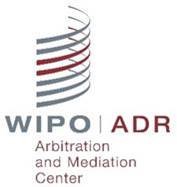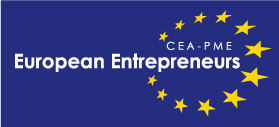
by Chiara Accornero and Justine Ferland, WIPO Arbitration and Mediation Center
SMEs play a critical role in today’s economy and can use intellectual property (IP) rights to build stronger, more competitive and resilient businesses. Despite their best efforts, however, IP disputes can and do arise. Court litigation can be costly and few SMEs have sufficient resources to use that route. SMEs are thus increasingly turning to alternative dispute resolution (ADR) mechanisms to resolve disputes without court litigation, and the World Intellectual Property Organization (WIPO) Arbitration and Mediation Center (Center) can provide valuable support and assistance in that regard.
Mediation and Arbitration
ADR refers to mechanisms such as mediation and arbitration that allow parties to solve their disputes outside of court in a private forum, with the assistance of a qualified mediator or arbitrator of their choice.
Mediation[1] is an informal procedure in which the parties request the mediator to assist them to settle their dispute. The mediator facilitates the settlement process by furthering dialogue between the parties and helping them identify their underlying interests and reach mutually satisfactory solutions. Arbitration[2] is a more formal procedure, whereby parties submit their dispute to one or several arbitrators who render a final and binding decision, the arbitral award, which is normally final and not subject to appeal. Expedited arbitration[3] is an arbitration procedure that is carried out in a short time and at a reduced cost.
Mediation and arbitration differ in terms of procedural formality, party control and finality, and each option offers benefits uniquely appropriate to particular circumstances. Mediation and arbitration can also be combined to accommodate the advantages of the different procedures, by having for instance a first mediation phase, followed, in the event of a failure to reach settlement within a designated period of time, by arbitration or expedited arbitration.
Advantages of ADR for SMEs
The potential of ADR for SMEs is significant. In the WIPO Center’s experience, mediation and expedited arbitration are particularly appropriate to resolve disputes involving SMEs. Their main advantages include:
- Time and cost: mediation and expedited arbitration allow parties to save significant costs that the parties would otherwise incur in multi-jurisdictional court proceedings. A typical WIPO mediation takes four months but it may be completed more rapidly at the request of the parties. As for WIPO expedited arbitration proceedings, they have been concluded with a final award in as little as five weeks.
- A single procedure: parties can resolve disputes covering issues protected in several jurisdictions in a single proceeding, making it possible to avoid the expense of multi-jurisdictional litigation and eliminating the risk of inconsistent results across national borders. International conventions[4] also provide for the international enforcement of settlement agreements and arbitral awards.
- Party autonomy and expertise: because of their private nature, mediation and expedited arbitration offer parties the opportunity to exercise greater control over the way their dispute is resolved. Depending on their needs, they can select streamlined or more extensive procedures and choose the mediator or arbitrator with expertise relevant to the dispute, rules and procedures, place and language of the proceedings.
- Confidentiality: mediation and expedited arbitration allow parties to keep the proceedings and the outcome confidential. Confidential dispute resolution helps parties to focus on the merits of their dispute without the fear of adverse publicity and to preserve the parties’ business relationships and reputations
- Preserving business relationships: mediation gives the parties the opportunity to go beyond the legalistic resolution of the dispute to negotiate creative solutions that satisfy their business interests, including preserving existing business relationships or forging new ones. 78% of WIPO mediation procedures settle and even in arbitration, 33% of WIPO cases are settled by the parties before any formal decision is issued.
The WIPO Center’s Services for SMEs
The WIPO Center[5] is part of the World Intellectual Property Organization and facilitates the time and cost-effective resolution of commercial IP and technology disputes through ADR mechanisms. Developed by leading experts in cross-border dispute settlement, the procedures offered by the WIPO Center are applicable in the context of most commercial disputes and are particularly appropriate for international IP and technology disputes. The WIPO Center is also the leading global provider of mechanisms for resolving internet domain name disputes[6] without the need for court litigation.
In offering dispute resolution services, the WIPO Center aims to meet the specific needs and challenges of SMEs[7], which currently represent 37% of users of its arbitration and mediation services.
The WIPO Center notably provides complimentary procedural assistance such as helping with the selection of mediators and arbitrators, facilitating communication, enforcing timelines, coordinating finance-related issues, offering guidance on the application of relevant procedural rules and arranging meetings and other support services. The WIPO Center can also assist SMEs in drafting contract clauses and submission agreements[8] and in submitting a dispute to mediation or arbitration, including in non-contractual and infringement disputes or cases pending before the courts[9].
SMEs may particularly benefit from the WIPO Center’s online case administration options[10], including an online docket (WIPO eADR[11]), videoconferencing facilities and a special WIPO checklist for online proceedings[12].
Finally, since July 1, 2021, the WIPO Center applies a 25% reduction on its administration and registration fees in mediation and arbitration cases where one or both parties is an SME or a company with up to 250 employees[13].
[1] https://www.wipo.int/amc/en/mediation/
[2] https://www.wipo.int/amc/en/arbitration/
[3] https://www.wipo.int/amc/en/arbitration/what-is-exp-arb.html
[4] Namely, the United Nations Convention for the Recognition and Enforcement of Foreign Arbitral Awards of 1958 (New York Convention) and the United Nations Convention on International Settlement Agreements Resulting from Mediation of 2018 (Singapore Convention).
[5] https://www.wipo.int/amc/en/center/index.html
[7] https://www.wipo.int/amc/en/center/specific-sectors/smes/index.html
[8] https://www.wipo.int/amc/en/clauses/index.html. See also the WIPO Online Clause Generator at https://www.wipo.int/amc-apps/clause-generator.
[9] https://www.wipo.int/amc/en/goodoffices/
[10] https://www.wipo.int/amc/en/eadr/
[11] https://www.wipo.int/amc/en/eadr/wipoeadr/


